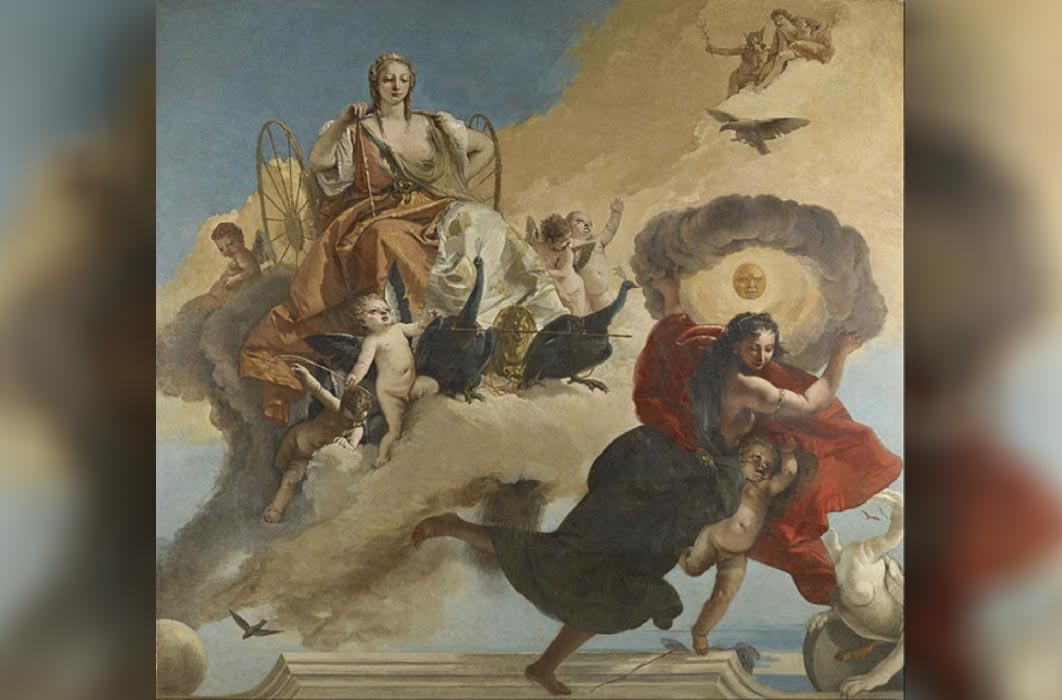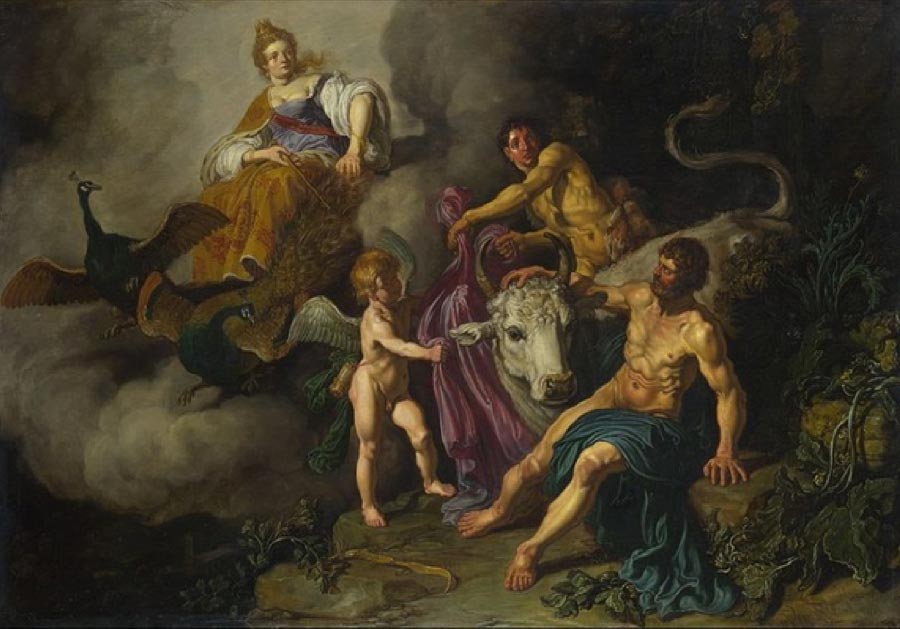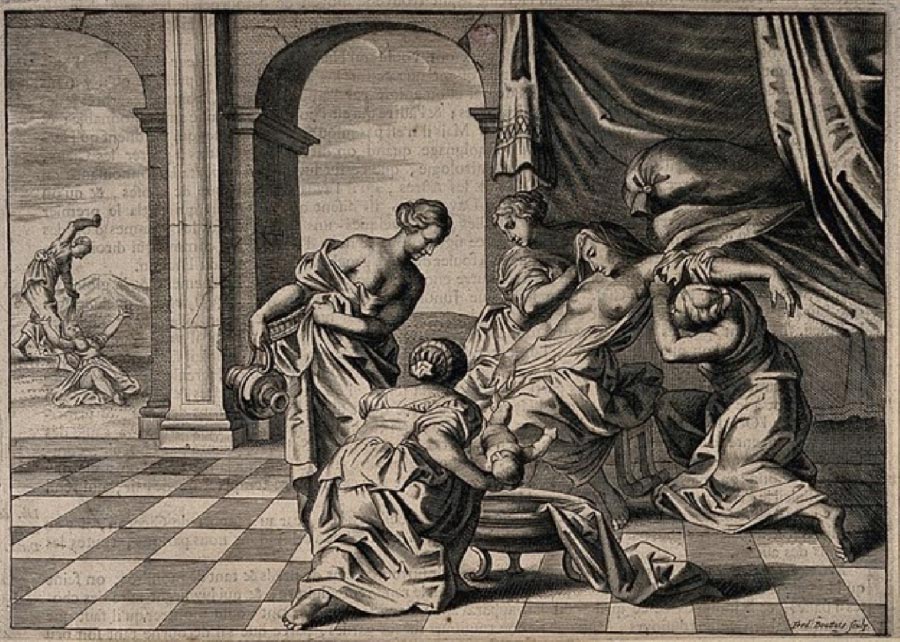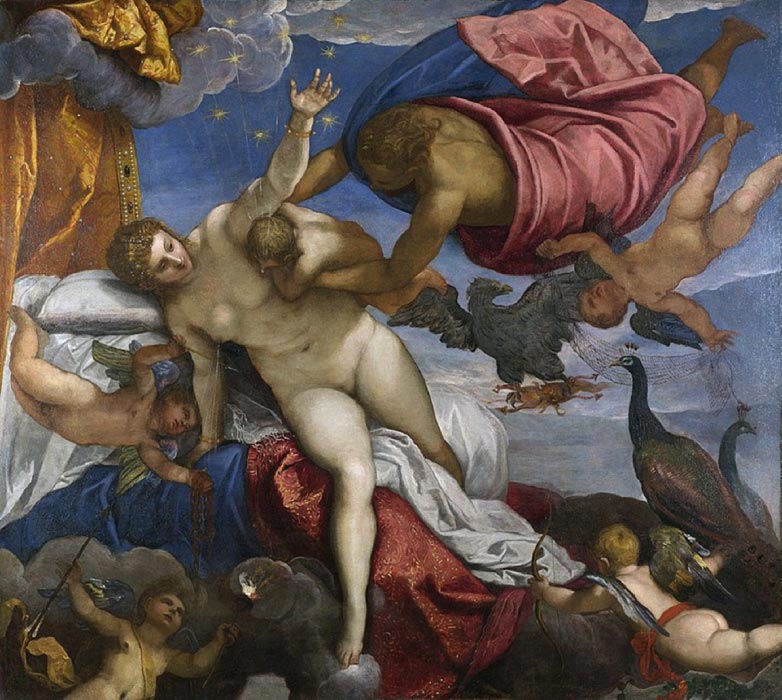
The Fall of Hera: Demoted from Autonomous Goddess to Wife of Zeus
Constantly battling with Zeus’ infidelity, Hera the ancient Greek goddess of family and marriage, often took swift and cruel revenge - not on her philandering husband, but on his conquests and the resulting children. "Heaven has no rage like love to hatred turned, nor hell a fury like a woman scorned,” are the lines of the 1697 play The Mourning Bride by William Congreve, which may apply, in retrospect to Hera’s scorn, but did she have recourse?

Hera Discovering Zeus with Io by Pieter Lastman (1618) National Galley London (Public Domain)
Hera’s Scorn
Hera turned Io, who was one her own priestesses, into a cow to deter Zeus’ advances. In other versions, it was Zeus who turned Io into a white cow, either to secretly rendezvous with her or to persuade Hera that he was not really interested in Io. However, Hera took the cow and set the one-hundred-eyed Argos to guard her. Zeus ordered Hermes to trick and kill Argos. In memory of Argos, Hera set his eyes on the wings of the peacock. Never forgetting her revenge, Hera then sent a gadfly to continually pester the unfortunate Io. Another victim of Hera’s jealousy was Semele. Hera tricked her into asking Zeus to reveal himself in all his godly splendor. The sight of Zeus’ divine body immediately destroyed Semele. Hera also turned Callisto into a bear to be hunted by Artemis.

Alcmene giving birth to Hercules surrounded by attendants (Wellcome Institute / CC BY-SA 4.0)
Perhaps Hera’s greatest nemesis was Alcmene (ironically meaning ‘strong in wrath’). Hesiod describes Alcmene as the tallest, most beautiful woman with wisdom surpassed by no person born of mortal parents. It is said that her face and dark eyes were as charming as Aphrodite's, and that she was faithful to her husband, Amphitryon. However, Zeus, her great-great grandfather, disguised himself one night as Amphitryon and unable to resist her beauty, he slept with her and impregnated her. Ovid’s Metamorphoses tells that when Alcmene was pregnant with Zeus' child, Hera tried to prevent the birth from occurring by having Eileithyia, the goddess of childbirth and midwifery, tie Alcmene's legs in knots. Her attempt was foiled and Heracles was born. In Pausanias’ recounting of the story, Hera sent witches to delay Alcmene's delivery of her baby. The witches were successful in preventing the birth until Historis, daughter of Tiresias, thought of a trick to deceive them. Either way, Hera’s attempt was thwarted and Alcmene gave birth to the hero Heracles.

The Origin of the Milky Way by Jacopo Tintoretto (1575) (Public Domain)
Hera’s Bad Moods
To add insult to injury, an account of the origin of the Milky Way says that Zeus tricked Hera into nursing the infant Heracles. Upon discovering who it was that she was nursing, Hera pulled Heracles from her breast, and a spurt of her milk formed the smear across the sky which can be seen to this day. While Heracles was still an infant, Hera sent two snakes to kill him in his cot. Baby Heracles throttled the snakes with his bare hands and was found by his nurse playing with their limp bodies as if they were toys. Hera’s hatred towards Heracles continued into Heracles’ adulthood as Hera drove him to madness which led him to murder his own family.




